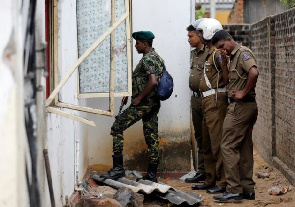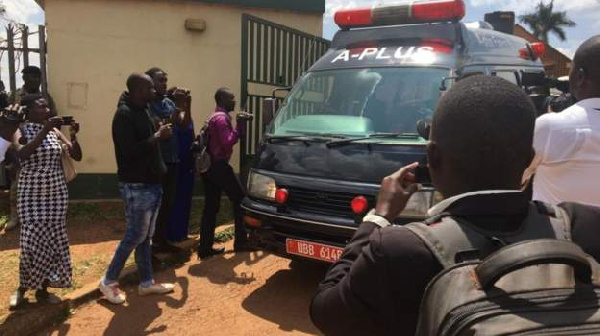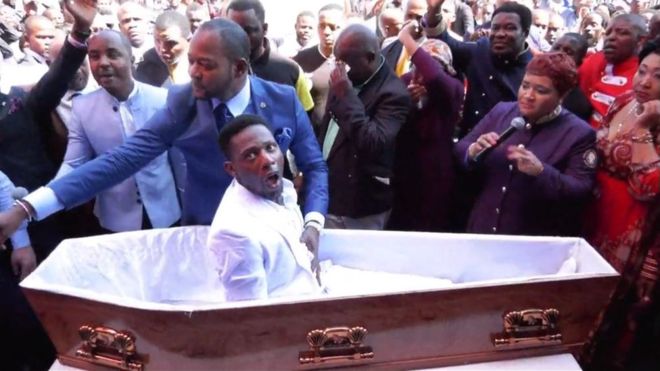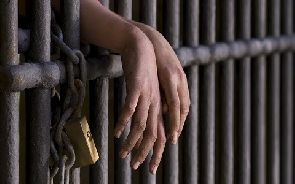Sudan coup: Military leader vows to ‘uproot regime’
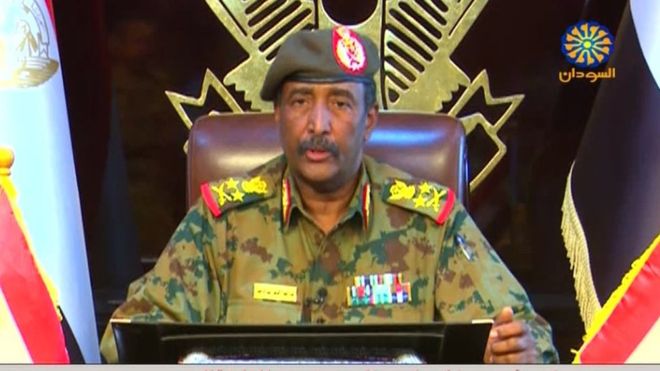
The leader of Sudan’s interim military council has vowed to “uproot the regime” two days after a military coup.
Speaking on TV, Lt-Gen Abdel Fattah Abdelrahman Burhan announced the restructuring of state institutions, the end of a night curfew and the release of political prisoners.
Protests continue despite the ousting of long-time leader Omar al-Bashir.
Demonstrators have demanded an immediate move to civilian rule and vow to stay in the streets.
Gen Burhan, who replaced the coup leader after he resigned on Friday, also dissolved all provincial governments and pledged respect for human rights.
The army would maintain “peace, order and security” across Sudan during an already announced transition period that would last at most two years until elections could be and civilian rule introduced, he added.
Using a more conciliatory tone, Gen Burhan also called on the opposition to “help us restore normal life”, promised to try those who killed demonstrators and vowed a war on corruption.
- Sudan unrest: The key questions
- Bashir ousted: How Sudan got here
- How Sudan’s strongmen stayed in power
The speech followed the resignation of feared security chief Gen Salah Gosh hours after the coup leader himself, Defence Minister Awad Ibn Auf, stepped aside.
No official reason has been given for either departure.
Later on Saturday the army named Lt Gen Mohamed Hamdan Dagalo as the deputy head of the Transitional Military Council.
Known by the nickname “Hemeti”, the general commands the paramilitary Rapid Support Force (RSF), which grew out of the government-backed Janjaweed militia.
What has the opposition said?
Opposition groups have reportedly met with the military to discuss “transitional arrangements”.
According to the privately-owned Baj News website the leader of the opposition Sudanese Congress Party, Omar el-Digeir, said representatives had demanded a civilian government with “full executive powers” and a role for civilians during the transition.
He also said they were waiting for the army to release jailed demonstrators, as promised.
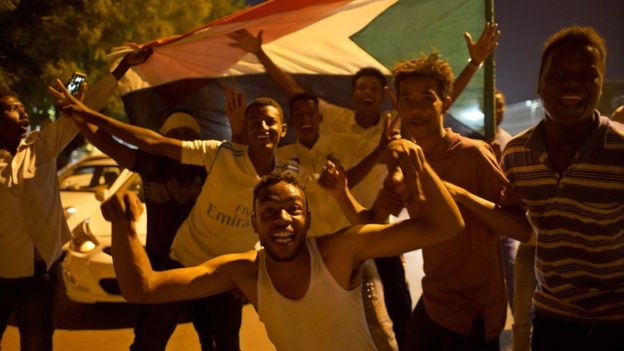 Image copyrightEPA
Image copyrightEPAThe Sudan Professionals Association (SPA), which has been spearheading the demonstrations, urged the armed forces to “ensure the immediate transfer of power to a transitional civilian government.”
It also called for protests to continue.
A growing economic crisis has gripped the country since the oil-rich southern part split away in 2011, and Thursday’s coup followed months of unrest over rising prices.
How did we get here?
When Mr Bashir was removed, he was replaced by a military council led by Mr Ibn Auf.
But demonstrators camping out outside army headquarters in the capital Khartoum refused to disperse, rejecting Mr Ibn Auf as an ally of Mr Bashir.
Mr Ibn Auf was head of military intelligence during the Darfur conflict and the US imposed sanctions on him in 2007.
On Friday the new leader announced he was resigning and being replaced by Gen Burhan, who is seen as a less controversial figure.
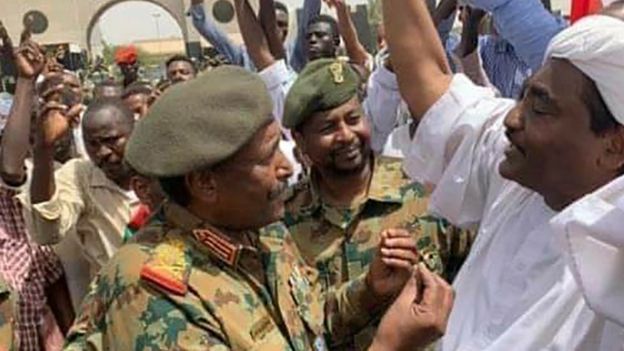 Image copyrightAFP
Image copyrightAFPProtestors have called for the abolition of “arbitrary decisions by leaders that do not represent the people” and the detention of “all symbols of the former regime who were involved in crimes against the people”.
“Until these demands are fully met, we must continue with our sit-in at the General Command of the Armed Forces,” the SPA said.
On Saturday, Sudanese TV reported the resignation of Gen Gosh, head of the National Intelligence and Security Service (NISS) which has powerful forces within the capital.
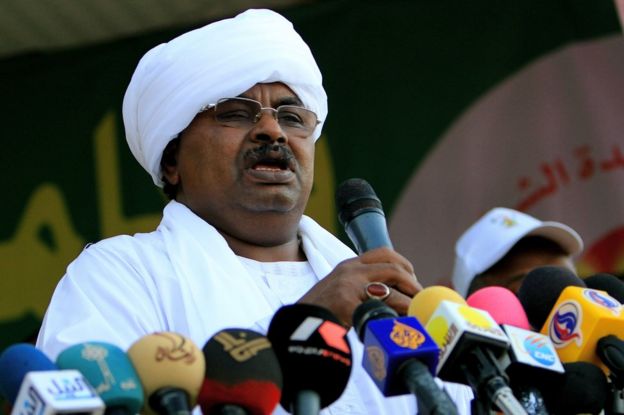 Image copyrightAFP
Image copyrightAFPThe general has been a key ally of Mr Bashir since the early 1990s and is among 17 Sudanese officials indicted for genocide, human right abuses and war crimes in the Darfur region by the International Criminal Court (ICC) in 2009.
The NISS has extensive powers and influence, supervising the paramilitary Rapid Support Forces.
At least 16 people have been killed by stray bullets at the protests since Thursday, police say.

Momentum with the protesters
By Catherine Byaruhanga, BBC reporter
The momentum is clearly with the protesters. They have forced out two powerful generals in just a matter of days. NISS, which Gen Gosh headed, exemplified the ruthlessness of security forces under Mr Bashir’s regime.
There is however anger that Gen Gosh is not being arrested for alleged human rights abuses. The SPA has called for the disbandment of NISS.
And interestingly soon after Gen Gosh’s resignation was announced, the SPA released the names of its negotiating team. In the past they said they would not publish any names for fear they would be targeted. The fact that they can do so now suggests there could be room for talks with the military council.
But in his first address Gen Burhan insisted the council would govern for two years. This idea has been rejected by opposition groups who demand a civilian transitional government. They have asked for demonstrations to continue until this happens.

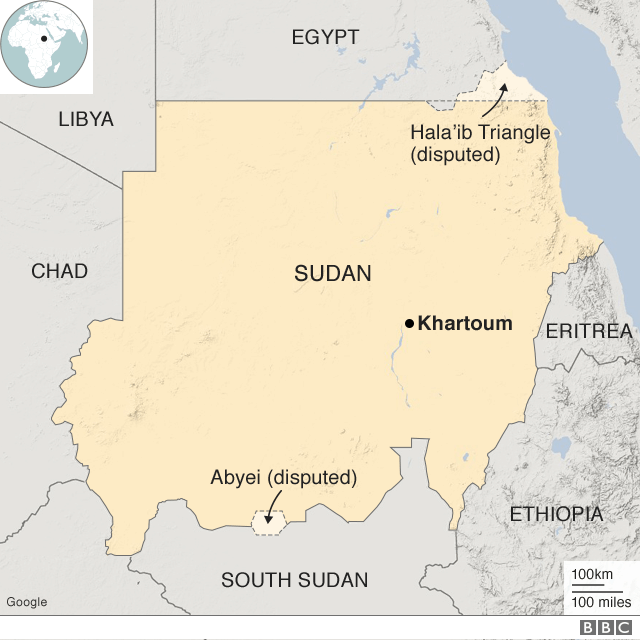

What will happen to Bashir?
He has also been indicted by the ICC on charges of war crimes and crimes against humanity in Darfur.
But the military council has said it will not extradite Mr Bashir, who denies the charges, although he may be put on trial in Sudan.
Mr Bashir’s National Congress Party on Saturday called his overthrow unconstitutional, and demanded that the military council release the party’s imprisoned members.

